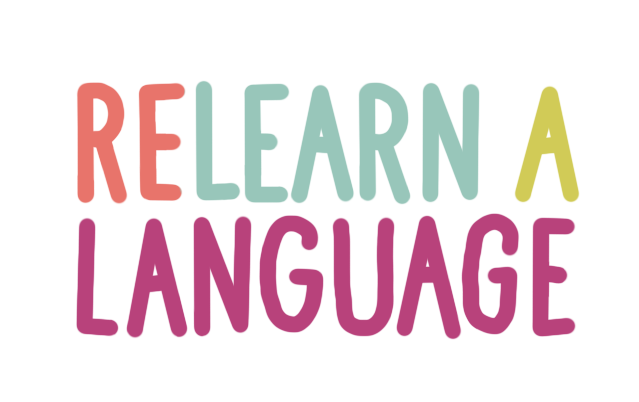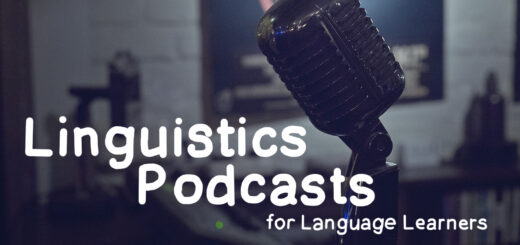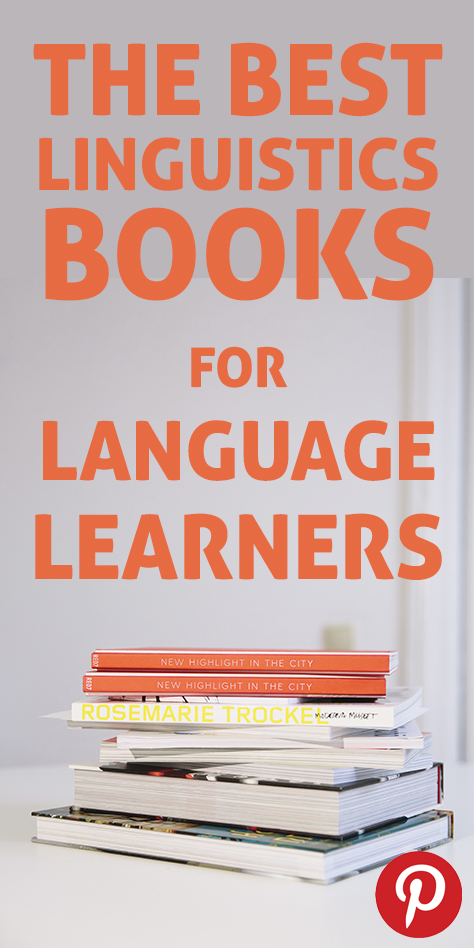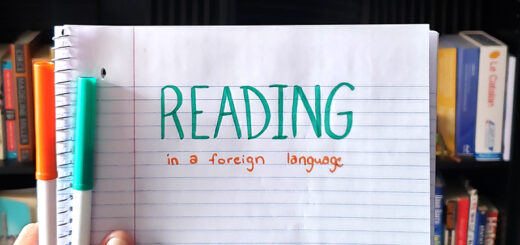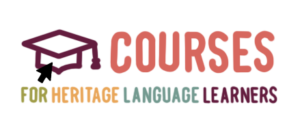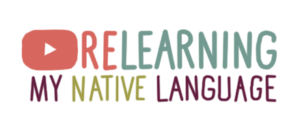14 Linguistics Books for Language Learners (2021)
by Marissa Blaszko · July 25, 2021
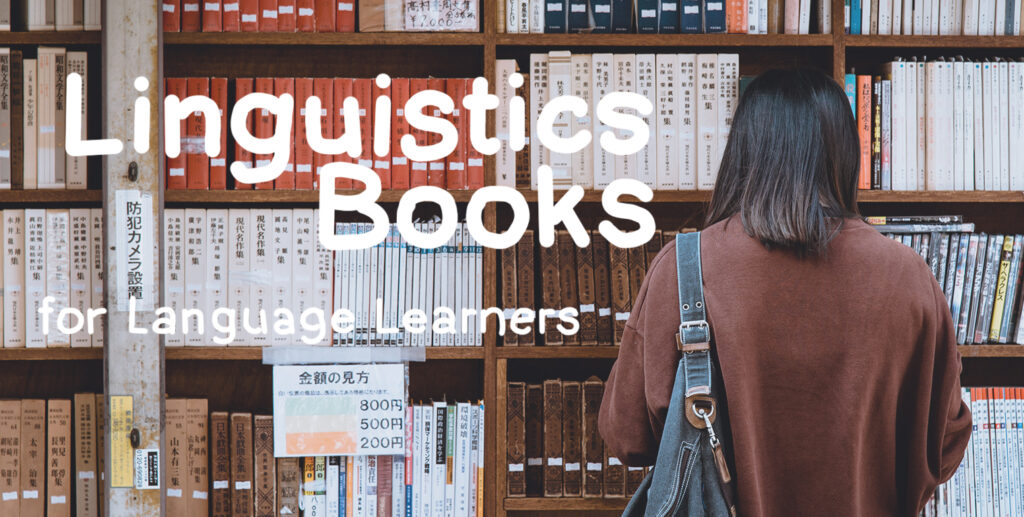
There plenty of are linguistics books out there for researchers and PhD candidates.
But as a regular person who fell in love with languages, those don’t interest me at all.
Years ago when I started learning languages, I got super curious about linguistics… but couldn’t find a really well-curated list of linguistics books online. So after years of hunting and reading, I decided to put together my own list of linguistics books specifically for language learners like me.
These linguistics books are fun, popular, and will help a curious person learn more about how we learn and use language. everything here is scientific but loads of fun to read.
(And honestly: some of them aren’t even linguistics books–just about language learning or communication which fans of linguistics will likely find super interesting.)
These books are not academic or technical. None of these books are textbooks and probably none of them are being used in university classrooms right now.
Now that said, let me introduce you to some of my favorite linguistics books of all times.
This post contains affiliate links. I may earn a small commission for items purchased at no extra cost to you.
Why languages learners should read linguistics books
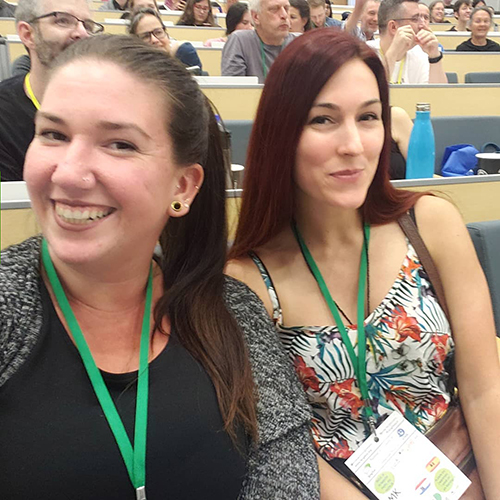
The overwhelming majority of language lovers I know love learning languages to speak them. Grammar, vocabulary, and poof! Next language.
And for a long time, I fell into that camp too.
I wasn’t concerned with how languages were imagined or where they came from. I spent all my time focusing on speaking Spanish or French, and never exploring bigger questions that learning a new language might open for me.
But with time, I became convinced that linguistics books should be incorporated into the regular study flow of all language learners.
First, there are amazing linguistics books about language acquisition.
When I first started language learning, I took advice from a ton of polyglots online. Learning a language is one of the hardest things you can do as an adult. So naturally, I needed help.
But I was shocked to discover is how few online polyglots are actually using science or research when they give out advice.
Linguistics books about language learning put out by universities or major publishing houses make sure any advice they have actually works–not just that it looks good on social media.
Second, traditional language classes don’t cover many essential parts of communication.
Several years into learning Spanish I was astonished to find out how many faux-pas I made, even though I had great Spanish grammar and a huge vocabulary.
Linguistics books about politeness, culture, or even body language help me cut through all of the invisible parts of communication I never saw before.
Third, we should be adding social sciences into our multilingual world views.
As a language learner, I’ve largely focused on learning new languages. That should seem obvious, right?
But I found it impossible to express my many opinions on things like the American “blaccent” or why phrases like “you guys” flowed out of me so naturally even though I knew they were sexist.
Linguistics books helped me rediscover my own language and build a critical lens to examine other languages with.
Finally, linguistics books are just fun. Period.
So now, without any other delay, let’s jump into my personal favorite linguistics books for language learners!
My hand-picked linguistics books for language learners
1. How Languages Work
David Crystal, 2007
Single-sentence summary: A fun and general overview of what language is and how we use it.
It’s important to linguistics because: making languages fun and accessible can help this seemingly omnipresent yet intangible science accessible to everyone. (Plus: it’s a lot of fun to read.)
You’ll love this book if: you want to refresh yourself on that Linguistics 101 course you took years ago, or if you want to get a better understanding of linguistics in general.
2. Becoming Fluent
Richard Roberts, Roger Kreuz, 2017
Single-sentence summary: Two linguistics share stories and studies about language learning around the world.
It’s important to linguistics because: very often, language learning “gurus” pedal non-scientific advice based on their own experiences. (Or worse: lie about their own accomplishments for social media.) This linguistics book uses real science and real stories to help budding language learners understand the process in a better way.
You’ll love this book if: you want to learn or teach languages (or already do).
3. Getting Through
Richard Roberts, Rober Kreuz, 2018 Single-sentence summary: Discover language learning and communication beyond grammar and vocabulary. It’s important to linguistics because: very often, language learning places emphasis on the standard or written spoken language. Through interesting stories and scientific studies, this linguistics book talks about the less-discussed parts of learning a language. Check it out to learn more about cultural faux-pas, foreign politeness rules, “low” dialects, new slang, and body language. You’ll love this book if: you’ve learned at least one language to fluency but still can’t figure out why you suffer so much miscommunication.4. The Babel Lexicon of Language
McIntyre, Jeffries, Evans, Price, Gold, 2021 Single-sentence summary: Get an entertaining crash-course into the different parts of language and start using linguistics terms like a pro. It’s important to linguistics because: it’ll help you understand how syntax is different than grammar, what a morpheme and nucleus is, and why you make those little noises when listening to someone speak. You’ll love this book if: you want to understand linguistics but only if it means having fun.5. Because Internet
Gretchen McCulloch, 2019 Single-sentence summary: A pop linguist teaches you all about the language of the internet through stories and studies that are sometimes funny, sometimes cringe, and always interesting. It’s important to linguistics because: more and more communication is being done through digital interfaces like phones, email, or social media. Because Internet is the most popular linguistics book to explore this new field of linguistics to date. You’ll love this book if: you’ve wondered about why your parents use emojis wrong, why “ok” is friendly” but “ok.” is angry; or WHY SOMEONE TYPING LIKE THIS MAKES YOU FEEL LIKE THEY’RE SHOUTING AT YOU.6. Talking Back, Talking Black
John McWhorter, 2018
Single-sentence summary: A famous linguist takes apart the myth that Black people in the US and Canada speak “incorrectly”.
It’s important to linguistics because: African American English is a real English dialect with a rich history, a ton of innovation, and plenty of grammar rules. This book helps readers peek behind the curtain and see how this unique dialect works, as well as why it should be used in schools as an amazing linguistics tool.
You’ll love this book if: you know Black lives matter and want to explore English from a new and refreshing point of view.
7. Freeing the Natural Voice
Kristin Linklater, 2006 Single-sentence summary: A classic in the theatre world, master teacher Kristin Linklater teaches how to use your whole body to mindfully communicate without words. It’s important to linguistics because: linguistics isn’t just sentence structure and words. How you use your whole body as an instrument for communication is an often overlooked part of language learning. You’ll love this book if: you want to embody the language learning process and not just focus on vocabulary and grammar.8. Ultralearning
Scott Young, 2019 Single-sentence summary: An autodidact blogger reveals his learning tricks like a magician showing what’s behind the curtain. It’s important to linguistics because: while it’s not an actual linguistics book, it’s one of the only books on this list that deals with scientific methods for how to learn a language. Scott also explores other things (like computer science and writing), but his personal language learning stories are a huge focus of the book. You’ll love this book if: you want to work smarter and not harder when it comes to language learning.9. Fluent Forever
Gabriel Wyner, 2014
Single-sentence summary: A language-learner turned app-maker goes through a variety of memorizing techniques and their practical application for language learning.
It’s important to linguistics because: very few language learning apps are scientifically-based. Back when Gabriel was just a blogger, these were the techniques he was using–and eventually, they’re the ones he used to create one of the only seriously effective language apps on the market.
You’ll love this book if: you struggle with memorizing vocabulary during language learning.
10. Don’t Think of the Elephant
George Lakoff, 2014 Single-sentence summary: An internationally acclaimed linguist teaches you how to deconstruct any argument made by political parties or marketing companies. It’s important to linguistics because: not all of linguistics is grammar. George Lakoff is a cognitive linguist, so his work deals with how we can construct language to change how others think. (Or, how to stop other peoples’ language from influencing us.) You’ll love this book if: you’ve always wondered why politicians talk the way they do, or how you yourself can be more persuasive.11. The Culture Map
Erin Meyer, 2014 Single-sentence summary: Learn how to read invisible politeness rules. It’s important to linguistics because: politeness is a part of communication that we often take for granted. Sometimes these rules involve words (please, thank you) and sometimes syntax (would you mind; I’ll let you go…) but often are truly invisible to none-natives of the culture (how we hold our heads or make eye contact; how we do or don’t invite people to social events). The Culture Map goes beyond vocabulary and grammar and helps you with the practical how-to of communication. You’ll love this book if: you learn languages to speak with people from other cultures.12. Lingo: Around Europe in Sixty Languages
Gaston Dorren, 2016 Single-sentence summary: Mixing linguistics with history and geography, this book explores 60 individual languages and dialects throughout Europe. It’s important to linguistics because: there are more languages in the world than we could ever learn in a lifetime. This book gives you a taste of nearly all of those found in Europe (and makes it a book unlike any other on this list). You’ll love this book if: you daydream about the next language you’re going to learn but don’t know when you’ll have the time.13. What Every Body is Saying
Joe Navarro, 2008 Single-sentence summary: A former FBI agent decodes body language so you can learn to read it better. It’s important to linguistics because: more communication happens non-verbally than verbally. If you’re struggling to fully understand someone else, or wondering what they really think or feel, this book will show you how. You’ll love this book if: you want to be a better listener and communicator. (Or, you’re just nosey.)14. Word by Word
Kory Stamper, 2018 Single-sentence summary: Take a walk through both the history of the English language and a contemporary English dictionary as you discover the hidden roots of everyday words. It’s important to linguistics because: languages don’t grow or exist in a vacuum. But in most English speaking countries, English-only education reigns supreme and “Speak English or Go Home” t-shirts are ever-more popular. We might need a reminder of how international this language is and has always been. You’ll love this book if: you speak two or more European languages (or are really passionate about English).Final thoughts (and frustrations) about linguistics books
As language learners, what we’re looking for when we pick up a linguistics book is different than what an academic is looking for.
Nearly all linguistics books fall into two categories: textbooks about tangible things like syntax or language acquisition; or silly language books about swearing or the dictionary.
My goal with this list was to include books that were equal parts entertaining and educational.
So hopefully you find your next favorite read here.
Finally, there are a few linguistics books I’ve been trying to find forever (in vain).
If you have any recommendations for good linguistics books about gender and language; Spanglish or code-switching; or accent acquisition PLEASE leave them in the comments so I can read them and consider them for this list!
